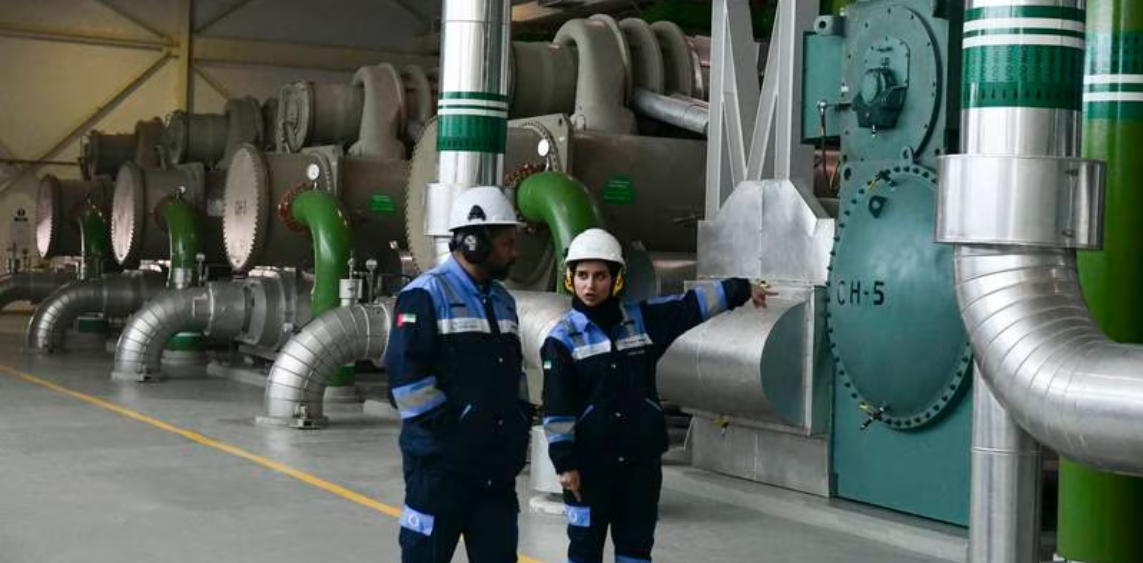The business will ‘eventually’ use its green financing structure to draw green equity funds.
To address the growing cooling demand in the UAE, the second-largest economy in the Arab world, the National Central Cooling Company, also known as Tabreed, and Adnoc are looking into more geothermal energy projects. The first geothermal energy project for the Gulf region was just unveiled by Tabreed and the Abu Dhabi-based energy firm, and it’s anticipated to provide 10% of Masdar City’s cooling requirements.
To expand the use of this technology, we will keep investigating the geothermal potential in the entire Abu Dhabi and Al Ain region. Managing director of Tabreed, Antonio Di Cecca.
The district cooling network at Tabreed’s sustainable research and development hub will get chilled water from the Masdar City project’s absorption cooling system after hot water heated by the heat from the wells passes through it.
This is a physical facility that will be connected to Masdar City’s current district cooling network. Before Cop28, we’ll be able to commission the plant. Construction has already begun, and we are on schedule, according to Mr. Di Cecca.
In contrast to intermittent sources of energy like sun and wind, geothermal energy uses the heat produced within the Earth’s core. High capacity factors for geothermal energy facilities allow them to operate for long periods of time at maximum output for longer periods.
According to the International Energy Agency, the usage of air conditioners and electric fans accounts for nearly a fifth of the total electricity used in buildings around the world, or 10% of all worldwide electricity consumption.
According to the EPA, the need for energy for space cooling is anticipated to more than treble by 2050. According to Mr. Di Cecca, cooling accounts for more than 50% of the electricity used in buildings in the United Arab Emirates, and that percentage can reach 70% during peak hours.
“Population growth [and] access to better lifestyle options will increase the demand for air conditioning, so policymakers and governments must make critical decisions on how to address [this],” he said.
Demand management and improving equipment efficiency are only two of the many options available.
District cooling, which entails a network of pipes filled with chilled water from cooling plants, would be crucial since it aids in aggregating demand, according to Mr. Di Cecca.
According to the World Population Review, the population of the UAE, which is currently 9.89 million, is expected to keep increasing until 2033, when it will reach a peak of 10.71 million.
One of the biggest utilities in the Middle East, Tabreed, has been quickly growing its activities there.
The corporation disclosed its green financing strategy last year in an effort to entice green equity funds to make investments in its enterprise.
Our goal, according to Mr. Di Cecca, is to investigate the market and see if there are any promising options before using this framework.
Particularly in the GCC states, the marketplace for green and sustainable bonds and sukuk is flourishing as governments in the oil-rich economic bloc strive to meet their net-zero pledges.
Masdar, an Abu Dhabi-based provider of clean energy, sold its initial green bond this month on the London Stock Exchange to raise money for its newest sustainable energy initiatives.
By selling 10-year senior unsecured notes, Masdar finished its $750 million green bond issue on July 19. Due to the significant demand from domestic and foreign investors, the offering was 5.6 times oversubscribed, and the order book reaching a high of $4.2 billion.

